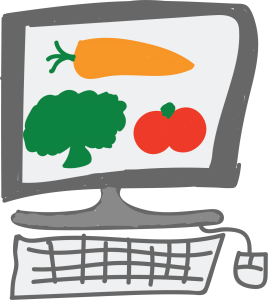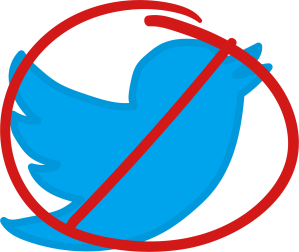
A year ago I wrote a blog post about living with an open-source phone. A commenter on Reddit described this as “tech veganism,” and I thought it was a great metaphor.
For the past few years I’ve swum in a lot of “tech veganism” circles (mostly thanks to Mastodon), so I think I have a good definition now:
- a preference for open-source software over proprietary software
- a suspicion of big tech companies
- a high bar for privacy and security
The parallel with veganism is a good one for several reasons. First off, a lot of people find vegans annoying. “What, you think you’re better than me?” It’s a lot easier to eat animal products if you don’t think about where they come from, and vegans are an uncomfortable reminder of food’s icky origins. Plus, it’s never pleasant to think that someone might be silently judging you for your personal lifestyle choices.
Now imagine someone telling you they don’t use Google, Facebook, etc. “What, you think you’re better than me?”
Second, people don’t typically choose tech veganism because it’s a better user experience. Even though some vegans may swear that their black bean burger tastes just as good as your Angus beef, the honest ones will acknowledge that it’s more about principle than palate.
Similarly, there are plenty of tech vegans who will claim that OpenStreetMap is a great replacement for Google Maps, or that DuckDuckGo provides better search results than Google. But if they’re being honest with themselves, they’ll admit that they’re more motivated by principle than quality or convenience.
Third, tech veganism is a good way to alienate people. Talk about it enough, and you may get accused of being overly dour, negative, cynical, etc. Can’t you just eat a burger and enjoy it like a normal person? Why do you have to bring up factory farms all the time, and ruin my meal? Similarly: why can’t you just use Google like a normal person? Why do you have to drone on and on about LibreOffice and OpenBSD?
Tech veganism can even cost you friends. In the same way that having one vegan in the group severely limits your restaurant choices, being the one tech vegan among your friends can really narrow down the options for communication apps. Sure, you can ask them to use Signal. Or email. But most likely, the group chat will just happen without you, and you won’t be getting any Facebook invites.
Fourth, in some cases tech veganism is difficult if not downright impossible. If you’ve ever actually tried to go vegan (note: I have), you’ll find it’s a constant battle of reading ingredient lists to find the hidden references to milk, eggs, fish, etc. (Some surprising things that aren’t vegan: Worcestershire sauce, kimchi, even sugar.) And once you travel to a foreign country, you might find yourself surviving on bread and water, or else giving up entirely and grabbing a croque-monsieur.
Similarly, it’s almost impossible to avoid proprietary software or the tech giants. Consider this FOSDEM talk, where the executive director of the Software Freedom Conservancy admits to having proprietary software embedded inside her body, because that was the only option for a defibrillator. She advocates open-source software, and yet despite her best efforts, she’s a closed-source cyborg!
Try to avoid Google or Amazon and you may find yourself in a similar boat. There’s a great series of posts from Kashmir Hill where she shows that it’s nearly impossible to quit the tech giants because of how enmeshed they are in every app, website, and network request. It’s easier to find something vegan at a Brazilian barbecue than it is to eliminate big tech from your internet diet.
Another similarity: just as there are more vegetarians in India, tech veganism can be surprisingly region-specific. In particular, Europeans have more reason than Americans to embrace tech veganism, because the non-Chinese tech giants – Google, Apple, Facebook, Amazon, Microsoft, the dreaded GAFAM – are all American.
The dominance of American tech platforms in Europe, and especially all the data from European citizens being siphoned back to Silicon Valley, can feel like an issue of national sovereignty. Hence we have France opting for the open-source Matrix project for government communications, or organizations like Framasoft depicting themselves as a tiny Astérix-like village holding off foreign invaders. And the invaders really are foreign!
One place where the veganism metaphor breaks down is that, although nearly anyone can be a vegan, tech veganism is mostly practiced by those who are expert enough or privileged enough to learn the elaborate workarounds to avoid the GAFAMs of the world. Setting up an Ubuntu laptop, a LineageOS phone, a Fastmail account, and wiring it all together so that you actually get calendar notifications is no easy feat. You will probably have to get your hands dirty on the command line.
I find that there’s a bit of a “let them eat cake” attitude among tech vegan boosters, because they often discount the sheer difficulty of all this stuff. (“Let them use Linux” could be a fitting refrain.) After all, they figured it out, so why can’t you? What, doesn’t everyone have a computer science degree and six years experience as a sysadmin?
To be a vegan, all you have to do is stop eating animal products. To be a tech vegan, you have to join an elite guild of tech wizards and master their secret arts. And even then, you’re probably sneaking a forbidden bite of Google or Apple every now and then.
So where does that leave tech veganism? Well, for the near term, it’s probably going to remain the province of geeks and specialists due to the difficulties described above. Ironically, that means that it’ll mostly involve tech workers building products that other tech workers refuse to use. (Imagine if veganism were only practiced by employees of meat companies.)
I also suspect that tech veganism will begin to shift, if it hasn’t already. I think the focus will become less about open source vs closed source (the battle of the last decade) and more about digital well-being, especially in regards to privacy, addiction, and safety. So in this way, it may be less about switching from Windows to Linux and more about switching from Android to iOS, or from Facebook to more private channels like Discord and WhatsApp.
Generation Z has grown up with smartphones and app stores as an inescapable fact of their lives. Does anyone under 21 actually care whether the code on their phone is open-source and whether, Stallman-style, they can dive into an Objective-C file and change something? Probably not many. Does anyone in that demographic care about their phone’s impact on their anxiety, their quality time with friends and family, and their safety from harassment and abuse? Probably a lot more.
In my opinion, this change is a good thing. You shouldn’t have to enter an elite tech priesthood just to preserve your privacy, security, and safety online. Tech veganism should be as easy as regular veganism – it should just be an option on the menu. That doesn’t mean that it won’t suffer from many of the same problems as regular veganism, but at least it will be democratized.

